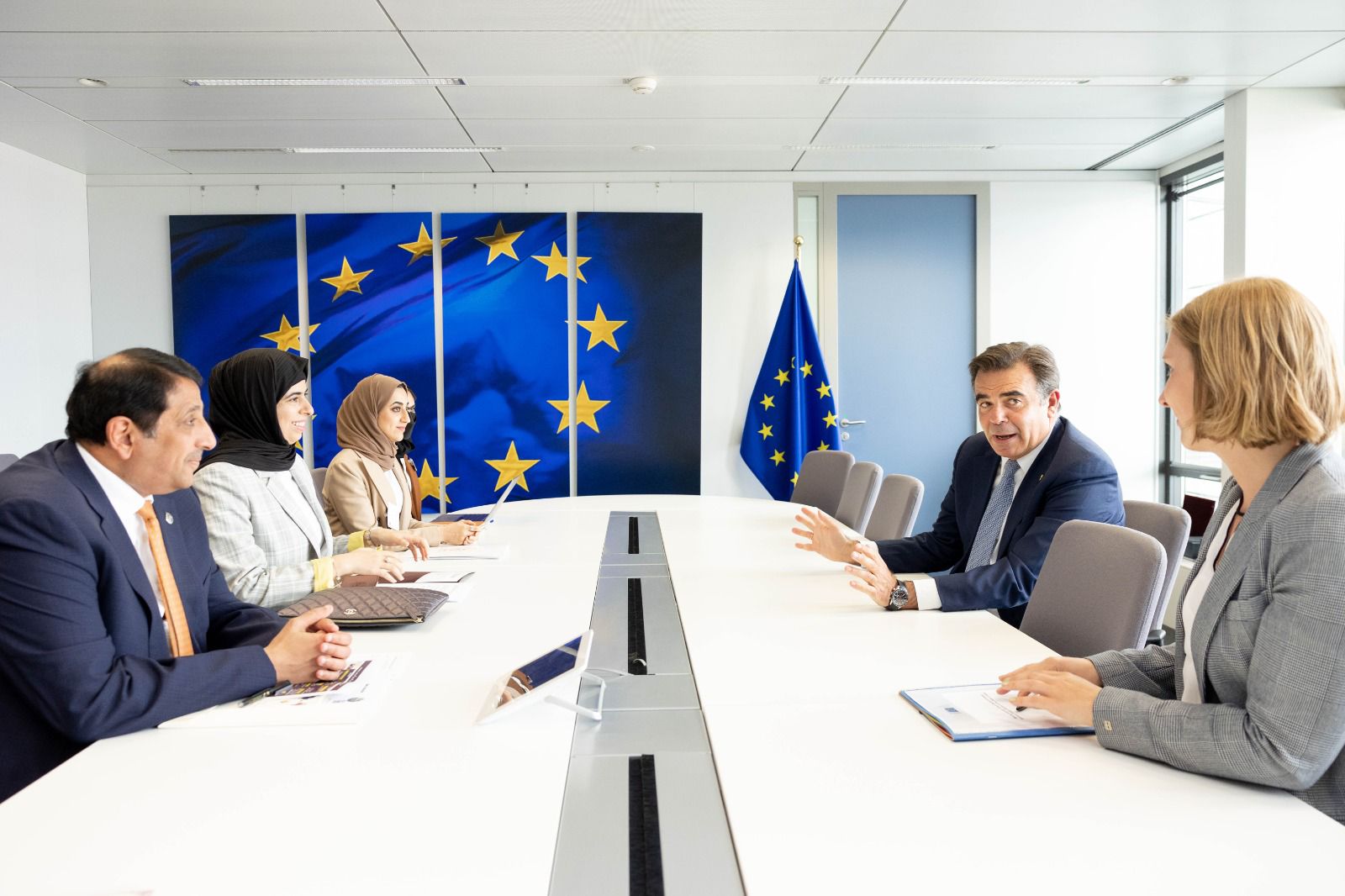Other matters discussed during the meeting with the EU included developments in Afghanistan.
Qatar’s Assistant Foreign Minister Lolwah Al Khater discussed the exemption of Qatari citizens from the Schengen visa on Wednesday with the EU Commission.
The matter was among the topics raised during Al Khater’s meeting with the Vice-President of the European Commission for Promoting the European Way of Life, Margaritis Schinas.
“During the meeting, they reviewed relations of bilateral cooperation between the State of Qatar and the European Union and discussed exempting Qatari citizens from the Schengen visa,” said the Gulf state’s foreign ministry (MOFA).
The meeting comes after the EU Commission proposed in April an entry visa exemption for Qatari and Kuwaiti citizens traveling to its members for up to 90 days.
The two Gulf states would join the UAE, which was added to the visa-free regime in 2014.
“Qatar and Kuwait also present external relations interests for the EU,” said the EU Commission after submitting the proposal.
The decision would be applicable to all EU member states except for Ireland. Other Schengen associated countries that are not subjected to the visa waiver include Iceland, Liechtenstein, Norway and Switzerland.
The European Parliament and the Council are assessing the proposal in order to make the final decision on whether to go forward with the visa exemption or not.
Qatar had welcomed the proposal, describing it as “an evidence of improving bilateral ties in all fields” between the Gulf state and the EU.
Issues of common concern
Other matters discussed during Al Khater’s meeting with the EU included developments in Afghanistan.
Al-Khater was at the frontline of mass evacuations of Afghans and foreigners last year following the Taliban takeover on 15 August. The Qatari official navigated through every site dedicated for Afghan evacuees in Doha on a daily basis.
Qatar was able to evacuate more than 70,000 Afghans and foreigners, carrying out history’s largest airlift of people. The Gulf state also continued to hold talks with the Taliban in an effort to preserve peace and stability in the country.
It has been hosting the Taliban’s office since 2013.
Another issue the officials tapped into includes the ongoing Russian invasion of Ukraine, which started on 24 February.
As of 31 May, Russia killed at least 4,149 civilians in Ukraine, including 69 children, since the start of the invasion, according to the UN. The actual figure is feared to be much higher.
Since the start of the invasion, Qatar has stressed the importance of respecting each country’s sovereignty, independence and territorial integrity.
In March, Qatar’s Foreign Minister Sheikh Mohammed bin Abdulrahman Al Thani met with his Russian counterpart Sergey Lavrov in Moscow. The officials had discussed the developments in Ukraine.
In a joint press conference with Lavrov following the meeting, the Qatari foreign minister condemned “everything to the contrary” of the UN Charter.
On Wednesday, Sheikh Mohammed met Lavrov in Riyadh, where the Qatari official renewed the Gulf state’s readiness to find a peaceful resolution to the ongoing war between Russia and Ukraine.
Qatar-EU ties
Ties between Qatar and the EU have witnessed growth this year.
Many European countries approached the Gulf state to replace Russian gas. Those included Austria, Italy, Germany, and France.
The invasion posed a threat to Europe’s gas supply, given that it received 40% of its gas supplies from Russia. Almost a third of the shipments passed through Ukraine.
In April, the EU also ended the 2018 antitrust dispute with QatarEnergy.
The European Commission launched an investigation into QatarEnergy companies and their reported impact on “the free flow of gas” within the European Economic Area (EEA).
Qatar and the EU also signed an agreement in February to establish an EU embassy in the Gulf state.







